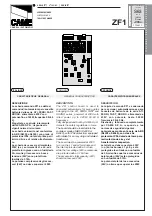
T e c h n i c a l I n f o r m a t i o n
5-52 OWNER’S HANDBOOK
Latch signal will remain asserted. If the AC current is less than 15A the
15A latch signal is deasserted and the PSU changes to the Power On
mode.
Shutdown input
Driving this input to logic 0 when the DC0-6 outputs are on returns it to
Standby or Power Off mode. Shutdown has no effect when the PSU is in
Standby mode or when the Power Up input is active. The PSU
acknowledges recognition of Shutdown active by negating DC good.
This takes no longer to signal than 1 second. The System Management
Unit may then immediately release Shutdown.
DC good output
The active high DC good output should be driven high between 100mS
and 500mS after the DC rails are stabilised within specification after
power up.
When the PSU powers down (except in fault conditions) the DC good
signal are driven low at least 1mS before the DC outputs deviate from
their specified ranges. This output is valid at all times as it is critical to the
operation of the computer system. It must not glitch during AC
disturbances or when the PSU is changing between operating modes. If
any DC0-2, DC3 or DC4 output module fails DC good will go low
immediately.
100-500mS
1mS min.
DC0-2, DC3 & DC4
DC good
Within specification
Output drive (logic high):
2mA at 3.1V min. Max. open-circuit
voltage 5.5V.
AC volts output
Whenever the PSU is in Standby, Power On or Backup modes, this
analogue output signal indicates the rms value of the AC input voltage,
assuming it is sinusoidal. The relationship between output voltage and
AC input voltage is lenear.
This signal is used by the System Management Unit in determining
whether the AC supply voltage is sufficient to power the system
configuration and in reporting AC supply problems to the user.
The signal indicates 0V AC input when the unit is in Power Off mode.















































